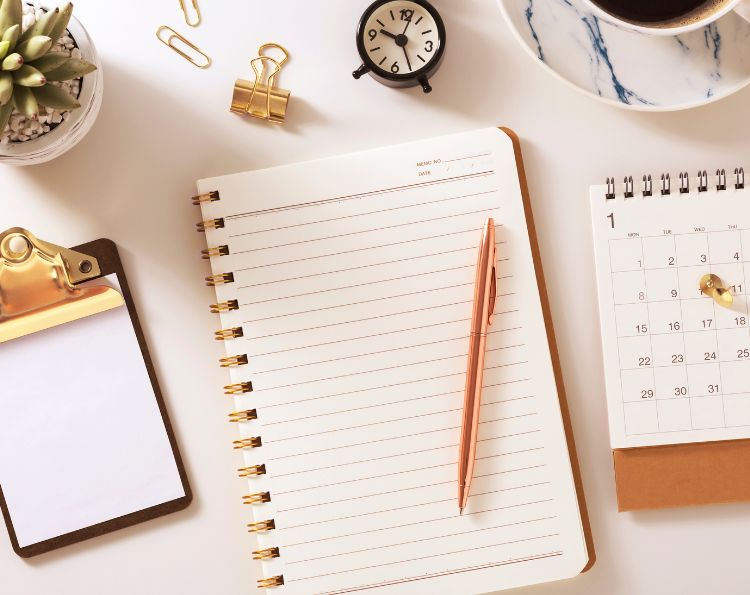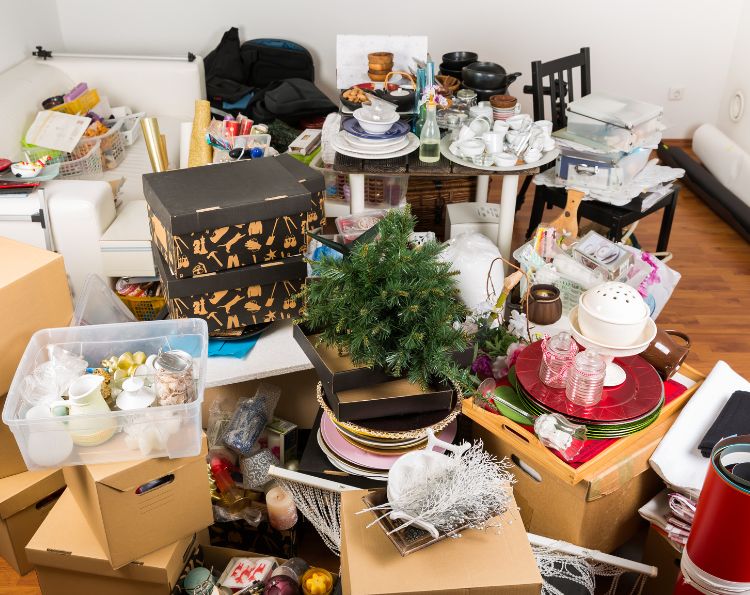How to Declutter Your Home Effectively
How to Declutter Your Home Effectively
Once in a while, you might look around your home and decide that there are far too many things laying about. Your home has started to become somewhat cramped and you’re having a difficult time finding things amidst the plethora of your other possessions.
Sometimes, this realization rears its head in someone else’s home or space. For example, you might be helping your parents or grandparents downsize, or you’ve grown tired of tripping on things every time you enter your child’s bedroom.
These situations are what decluttering was made for. Read on to learn about how to declutter your home effectively.
Use a Declutter Checklist
Decluttering your home can become overwhelming fast if you don’t have any sort of plan to follow. This is especially true if you have a large home or a lot of possessions to go through.

To make decluttering easier right off the bat, try using a decluttering checklist. It’ll provide you with a framework to follow so that you have some semblance of directions to reference. In addition, you can use a checklist to make sure that you don’t forget anything along the way. Taking care of the decluttering process in measurable steps helps reduce the need to backtrack and revisit something you forgot to do earlier.
Part of what makes decluttering so tedious is the feeling of repetition a person can get when having to go back into a room they thought they were finished with.
If you desire, you can create your own checklist from scratch, or take a look online for a checklist you can reference.
Move Room to Room
When taking on the process of decluttering your home, don’t rush back and forth between rooms. It can become incredibly difficult to make any headroom when cleaning this way.
Instead, start with one room, declutter it completely, reference your checklist, and when you’re sure that you’ve done all you can do in this space, move to the next room.
Depending on your preferences, you can start with the most cluttered, messy room in your house, then work your way toward easier rooms. If you’re the sort of person who builds momentum as you go, you’ll probably want to start in the cleanest room, then make your way toward rooms with more clutter.
Have Clear Options for Your Property
When a person lives in a single location for several years, they naturally tend to compile a good deal of “stuff” in their homes. While some of these items only seem important initially, some of the possessions we keep have sentimental value no matter how long we’ve had these items.

Let’s say you’ve kept a knitted blanket your grandmother made, and you keep it in a box to protect it from wear. Or, let’s assume you have a family photo album that showcases generations of your family’s memories.
Chances are, you’re not going to use these items within a six-month period, but you’re not about to throw them away just because of this arbitrary tip.
To avoid running into conflicting feelings during the decluttering process, have five different options in place as you work.
1. Keep
This option applies to possessions you use on a regular basis. Most of the time, it will be easy to decide which items you want to keep. If it’s important to you or has sentimental value, you don’t have to force yourself to part with it.
2. Sell
You might have random pieces of property that you don’t use, but you don’t want to simply throw away. Whether you’re hoping to make a bit of money or you just don’t like the idea of throwing away perfectly functional items, selling is another option. If you have items at home that you could reasonably sell, there are plenty of online platforms you can use to find a new home for the possessions in question.
3. Donate
If you have items that you don’t use anymore, but they’re still in decent condition, you might also consider donating them to a local charity. Clothes, towels, blankets, kitchenware, and the like could be very useful for individuals or families who need household items despite not having much disposable income.

4. Discard
It’s quite easy to determine which of your possessions should be discarded. Unless pieces of old mail or stacks of receipts belong with your other financial records, they can usually be thrown away (shred them first). Broken items or empty containers can also go to the trash. If you don’t need it, don’t use it, and no one else could reasonably use it, the discard pile is the place for it.
5. Storage
Finally, if you have items that have sentimental value to you, but you don’t use them often, you can still declutter your space by putting these items into a designated storage area. Family heirlooms, photo albums, and other items that are irreplaceable can be stored for safekeeping. This way, you don’t have to feel pressured to make space for them in your home, nor do you have to get rid of them.
If you’re not sure about an item you’ve come across, don’t worry too much about it. Not every decluttering choice is an easy one, so if you want to avoid making a hasty decision, save the item by placing it in a specific box. Put the box away and wait six months. If you don’t need the item within that time, this realization might help you decide to part with the item in question.
Add Organizational Tools
Part of decluttering involves designating a place for everything in your home. This way, you’ll be less likely to sit items down at random, thus reducing the risks of creating more clutter.
To designate a home for all of your property, it’s a good idea to implement some of these organizational support peices. The Tailored Closet can help with these tools, and provide some custom solutions designed just for you.
- Closet / pantry organizers
- Wall hooks for coats, bags, keys, dog leashes, etc.
- Kitchen drawer organizers
- Bookshelves
- Storage ottomans/benches
- Laundry hampers
- Shoe racks
Call 866-712-3404 today or go online to www.tailoredcloset.com to find a designer near you and schedule a free, in-home or virtual* consultation.
*Virtual consultations are not available at all locations.